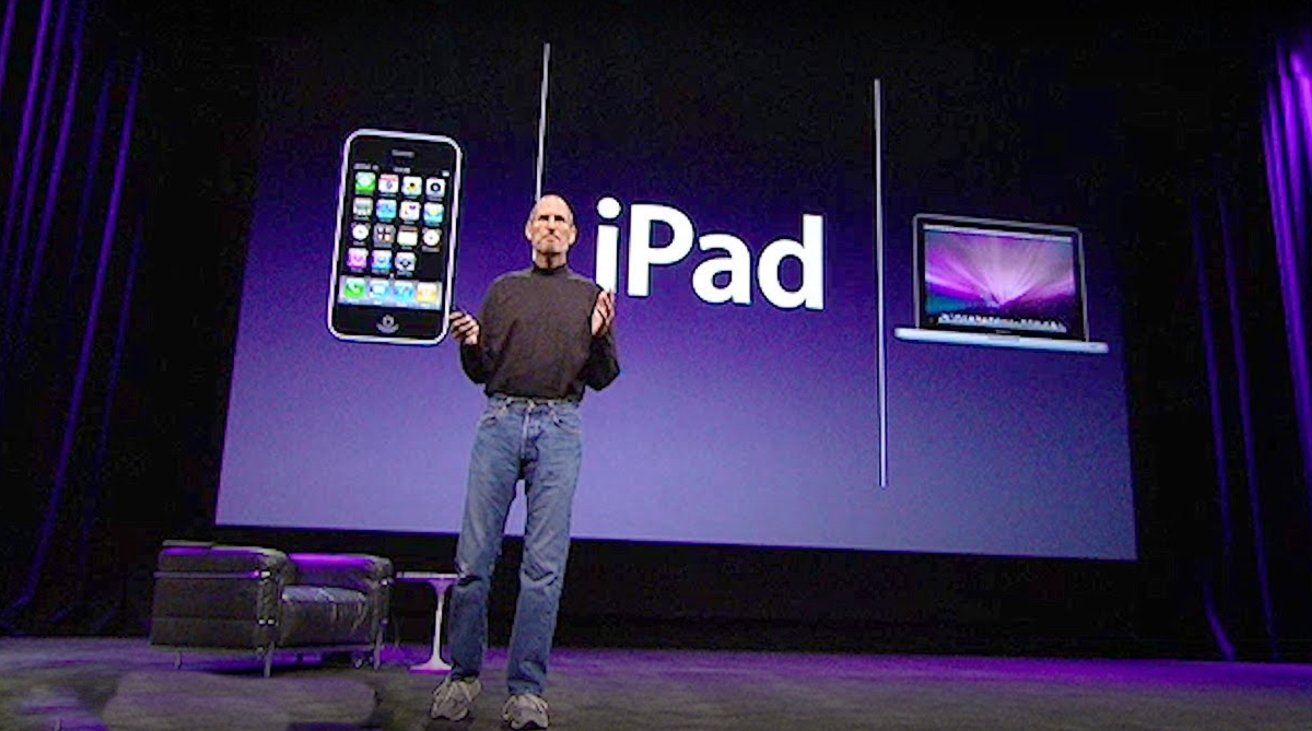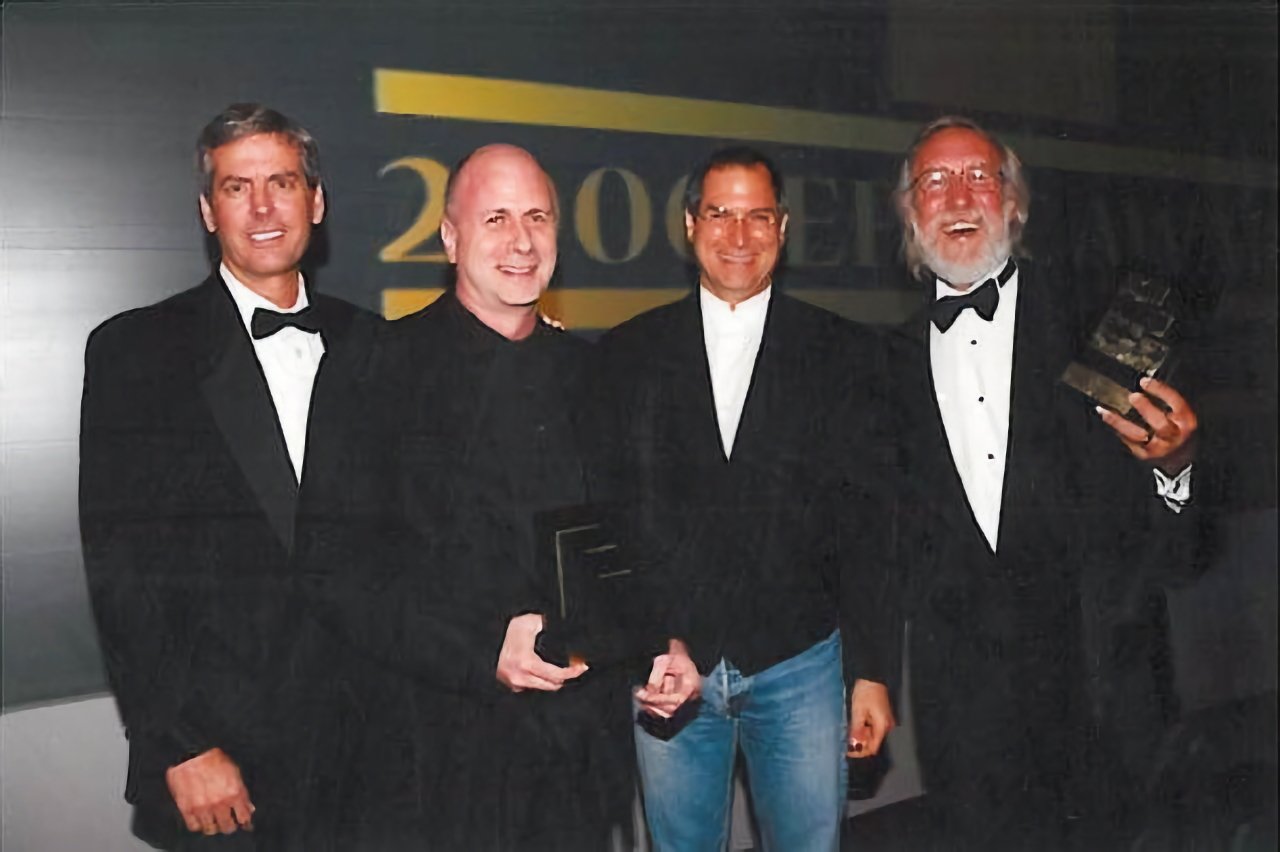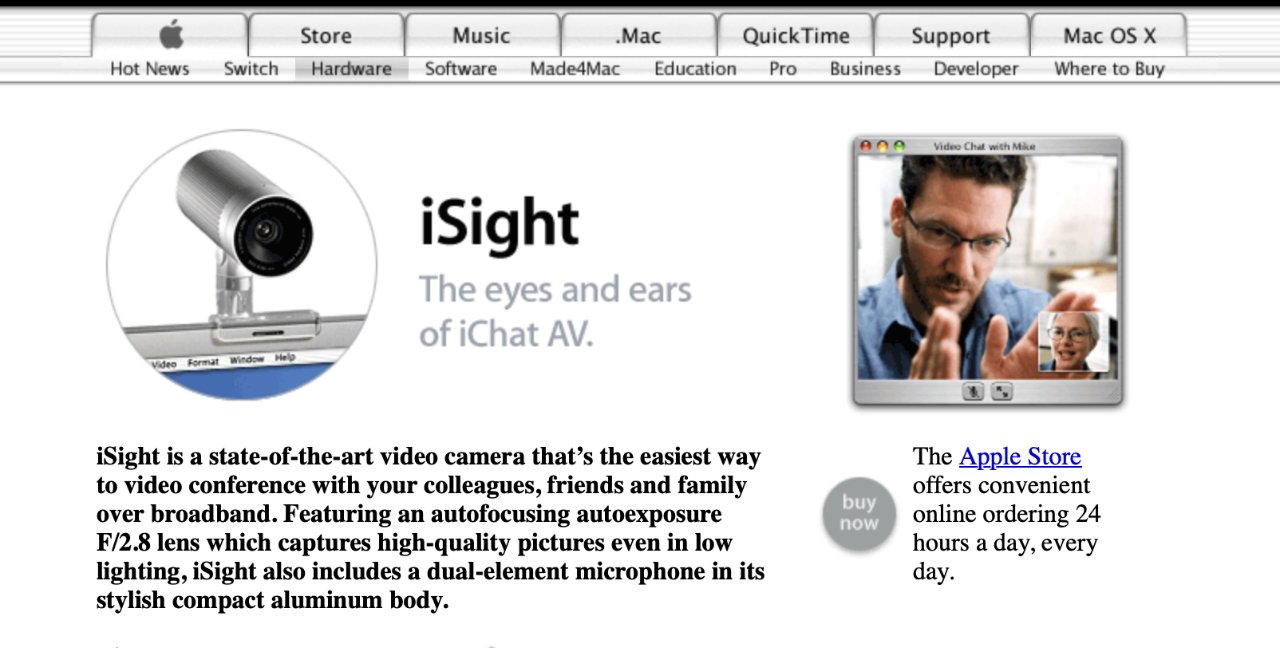How Apple has steadily been dropping the 'i' from its devices for over a decade
From the first iMac in the 1990s to today, the prefix "i" has symbolized Apple -- but Apple has been working to get rid of it since the original iPad in 2010.

Steve Jobs launching the iPad in 2010 -- the last Apple device to be named with an "i"
There is still of course the iPhone and the iPad -- but there's no iWatch or iTV, and certainly no iVision Pro. Across hardware, software, and services, Apple named around 30 products with an i following the success of the iMac in 1998.
It's just a letter, but it's so strongly associated with Apple that to this day there are people who call the Apple Watch an iWatch.
They do so even though the last entirely new Apple products named with the i prefix were iCloud and iAd in 2011. The last entirely new hardware device was the iPad in 2010.
When Apple began dropping the i
It may be just a coincidence, but the iPad was also the last new hardware device that Steve Jobs launched. It is definitely true that Jobs was a proponent of the i prefix because the man who thought of it says so.

Ken Segall (second from left) with Steve Jobs (second from right)
"I'm milking this thing as long as I can," marketing executive Ken Segall told Wired. "That I came up with the 'i' in the original iMac makes people interested in what I say."
And what he says is that the "the 'i' needs to go... it's now meaningless." Segall says that Steve Jobs built up Apple around this letter and the name iMac, but there are now too many firms using it.
It has definitely lost its "internet" meaning since the iMac helped turn internet connectivity into an everyday part of society.
Segall is also right when he further argues that it's not possible to trademark, or otherwise protect, the prefix i. And that could actually be why Apple began moving away from it.
Apple's first moves away from i
In 2006, Apple gave one of its rare sneak peeks into the future when it showed off what was to become its television set-top box. At the time, it was called "iTV" -- but not for long.

It didn't stay as "iTV" for long.
The UK's Independent Television (ITV) network objected and the box was ultimately released as the Apple TV. At the time, ITV had been running in Britain for just over five decades, so it would have had no difficulty proving prior use in any legal case.
Apple has a tradition of not especially caring whether anyone else is already using a name it wants. For the iPad, it may later have spent years in litigation protecting the name iPad, for instance, but at the start it just bought the name from Fujitsu.
Or so much more recently that it's not clear whether this has been resolved or not, there is the case of the Apple Vision Pro. Before that can launch in China, Apple is going to have to find a way to settle a trademark fight over the name.
The future of I, Apple
"There might be marketing experts who say Apple would be crazy to drop the prefix -- it's still in front of some of the greatest brands ever," says Segall, "but it can't be protected, and for too long there have been companies with 'i' internet-connected things, and that's an issue for Apple, known for innovation."
He does also acknowledge that Apple may now be more risk averse over changing names, like the way it dropped "PowerBook" in 2006 and replaced it with MacBook. Being so much larger a company now, and therefore with the potential for more jobs to be lost if things goes wrong, Apple may prefer to play safe.
But then there is also the fact that the iPhone is the single most successful product in history. Apple could change the name, but it would need a reason and just not being as enamored of the letter i as it has before, isn't going to cut it.
What we leave behind
Again, there is still the iPhone and the iPad, plus the iMac, and iCloud, and iMessage. But over the years, Apple has dropped the iPod and the iSight.
It's also dropped iBook -- twice. First it was the name of Apple's consumer laptop, and then it was the app for buying and reading books on iPads.
That got renamed Apple Books, and the iBooks Store went the same way. The iTools, iDisk, iWeb, iChat, iSync, and iCal vanished alongside one you probably never noticed, an iTunes feature called iMix.

Gone and forgotten -- Apple's iSight webcam.
There's another one, of course, as iTunes is still referenced occasionally. The app is called Music and instead of selling tracks, Apple is pushing the Apple Music streaming service.
We do still have iOS and iPadOS, plus iMovie, but iPhoto has become Photos, and today iDVD sounds positive prehistoric.
The latter three are still officially part of what was called the iLife collection of apps, while Numbers, Pages, and Keynote are still ostensibly the iWork apps.
But the last release of a product called iLife was in 2010, and while iWork has fared better, its last boxed release was in 2011.
So when Ken Segall thought up the name iMac, he created far more than he can have imagined. But now that he wants Apple to kill off the i, he's perhaps missing that it's been working on that for over a decade.
There is more to products than naming, though, and separately, Segall has argued that the innovative spirit of Steve Jobs lives on at Apple.
Read on AppleInsider

Comments
The other products while some were popular, weren't the name people think of when they think of Apple. Today that may be slightly different with their MacBook lineup as its one of the most popular laptops in the world now but back when PowerBook existed, or iBook I just don't think people thought of those products first when they think of Apple unlike iMac or iPhone.
Steve Jobs was… iCEO… interim CEO.
Although the ‘i’ run wild… I think I should remain in the iPhone and other places.
The original ‘iMac’ was the ‘internet’ Mac… so it should be remain with that name.
The problem began with the iPod… as a device it had nothing to do with internet.
But its name came from a previous unreleded ‘internet Pod.’ The story goes that Steve, tired of discussing names, decided for it.
On the funny side of events… it was the origin of… ‘podcasts’… a now internet only journalism.
The original ‘iBook’ was also meant to ‘easily connect with the internet’… but it is good that it is gone.
The origina ‘iTunes’ was also meant to download music from the internet. But it is now better being Music.
The iPhone brought the full internet to the cellphone! Do we remember the ‘mobi’ sites?
So… the iPhone… deserves the ‘i’ forever.
The iPad is a kind of… someone between the iMac and the iPhone… Not the perfect name but no really bad.
iCloud… is a full internet service… so it is perfect as a name.
So… what I meant to say is… keep the ‘i’ withe all the devices/services REALLY involving the internet.
(As a side note, the PowerBook name… reflected the name of the chip inside: PowerPC… and that was a registered trademark of IBM. When Apple used Intel chips… ghould it name the laptop IntelBooks?)
Cloud
Messages
Mac
.... all sound great.
With the exception of:
Pad
That sounds silly. Good luck to the marketing Dpt!
https://m.youtube.com/watch?v=JgHtKFuY3bE